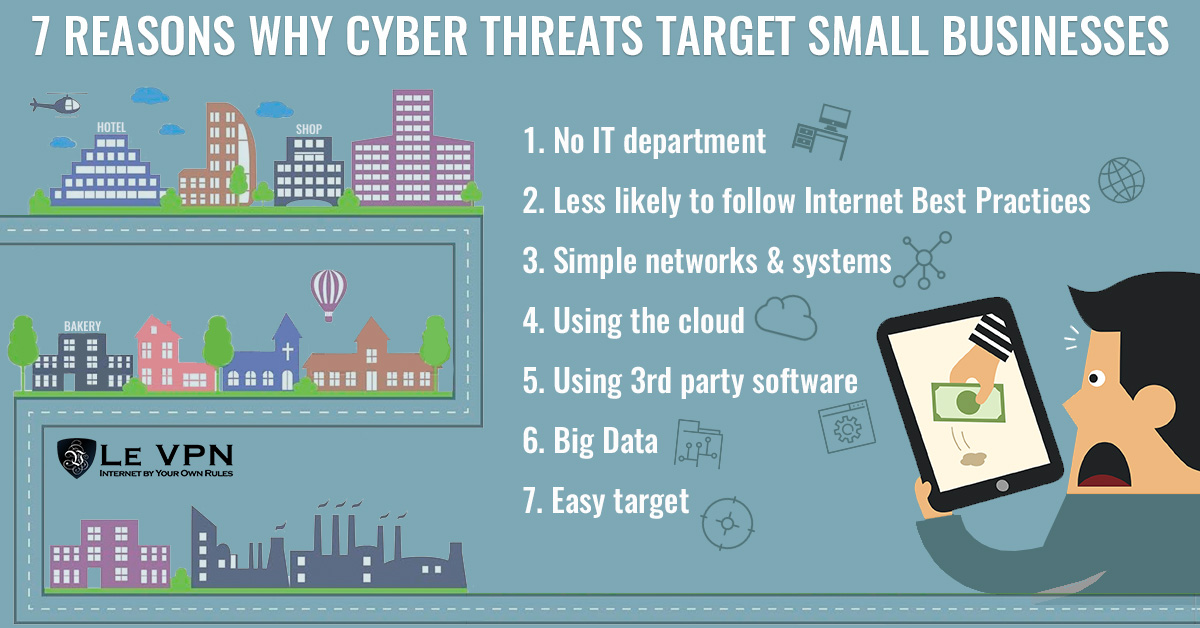Cybersecurity is no longer just big business for big businesses. With the proliferation of the Internet, cloud computing, electronic payment, online credit card and mobile payments, businesses’ data and that of their customers are more at risk than ever of falling victim to a cyber attack.
Large retailers and financial institutions are spending millions to shore up security to identify and prevent data breaches.
Small, local businesses often think they have less risk. They aren’t multi-million dollar corporations and their customers aren’t wealthy millionaires, so what value could their data possibly have to a hacker.
But data is data, no matter how big or small. Cyber criminals often target small businesses if for no other reason than because their defenses are easier to crack.
That’s why when it comes to information security, small businesses should operate like large businesses.
Data breaches hit the little guy harder
Five out of ten U.S. companies fail in their first five years. Studies have shown that as many as 60 percent of small business failures can be attributed to data breaches, Inc. Magazine reports.
It may seem counterintuitive that a data breach might take down Aunt Mae’s Flower Shop, while Target’s bottom line has gone largely unfazed after its mammoth data breach in 2013, which affected 40 million customers.
Target has the resources and brand recognition to survive a cyber attack, even one of that affects millions of people. Data breaches often blind side smaller businesses, which usually have very little in the way of security protocols and no pre-existing resources to assist in mitigating a breach. With a small clientele, a loss of reputation can hit a small business’ revenue hard.
Even if a small business manages to maintain its reputation, the monetary cost to meet all the regulatory requirements following a data breach, along with the costs to investigate and repair the breach, can make it very hard to recover financially.
The best way for small businesses to protect themselves is to plan, prepare and stay ahead of cyber crime. When a data breach does occur, businesses that already have a plan in place can more easily repair the damage, recover the data and get back to business.
Tips to take action
If your business accepts credit cards, ensure that you meet the PCI ( Payment Card Industry) Data Security Standards. Being PCI complaint is just one of the effective ways to help ensure you are doing everything you can to avoid a data breach. Doing business online? Ensure you are using secure PCI compliant servers and services. Not sure what that means? Contact us.
Having an information technology and cybersecurity firm, like ZZ Servers, to help design an effective, security plan for your business can make the cybersecurity process manageable. From defining cybersecurity risks to identifying which information should be secured to implementing the best practices for your business, nothing should be left to chance.
Big businesses don’t and shouldn’t have a monopoly on cybersecurity. No matter your company’s size, information security should be a priority. After all, the price of a data breach could be your small business.


